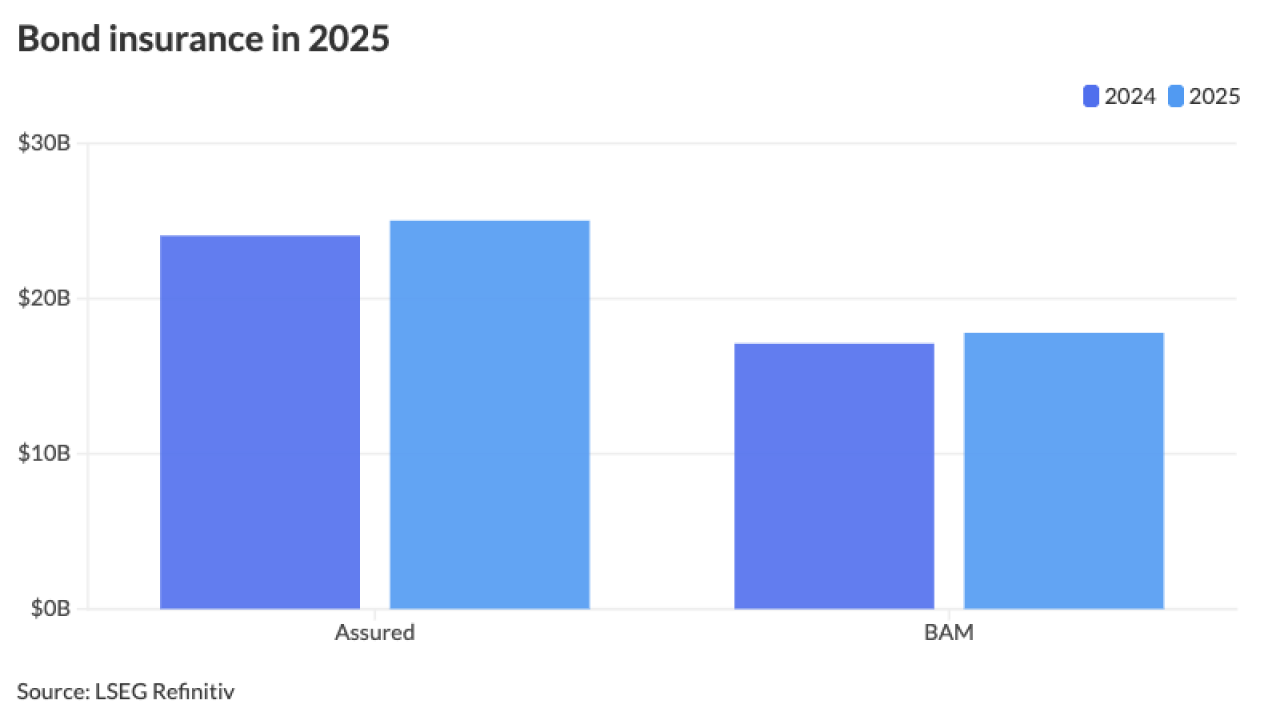The House stopgap funding measure that would keep the government funded through Oct. 31 may be voted on as soon as Thursday, but how Congress deals with its passage has muni advocates and local governments on their toes as to how a larger omnibus bill will be handled later this year.
The funding measure that was introduced as a compromise between the more extreme House Freedom Caucus and more moderate Republicans imposes an 8% spending cut on most federal agencies, exempting the Pentagon and the Department of Veteran Affairs, which doesn't offer a very comforting sign to those hoping to include some of the long sought-after muni provisions in a larger bill.
"The thing I'm watching mostly is just the pullback on spending, as our provisions do cost dollars above what is currently being spent," said Brett Bolton, vice president of federal legislative and regulatory policy at the Bond Dealers of America.

But the funding measure could also have implications for some of the federal subsidies that state and local governments utilize.
"One of the things that is a part of this conversation are subsidies, and direct pay and PAYGO is, of course, a part of this conversation," said Emily Brock, director of the federal liaison center at the Government Finance Officers Association. "We could be talking about the SLGS window closing as well, so we're going to be paying attention to those moves by Treasury."
But the 165-page continuing resolution that Speaker of the House Kevin McCarthy, R-Calif., hopes to vote on later in the week doesn't include some of the must pass items such as billions of dollars of disaster relief for the Federal Emergency Management Agency, which is being pushed hard by President Biden.
Further complicating the issue is whether or not Congress will authorize additional funding for the war in Ukraine, highlighted by a visit this week by President Volodymyr Zelensky, as well as the $886 billion fiscal 2024 defense appropriations bill, which the House is also trying to move forward this week.
Whether McCarthy can whip the votes for this ahead of a government shutdown may be the single biggest test of his tenure as Speaker, and what seems like an easy bill still has a long road ahead.
"I think at the end of the day, there's going to be enough Republican holdouts and it's going to take some kind of compromise with the Democrats to get it across the finish line," Bolton said. "And that just brings in a whole other set of complications."





